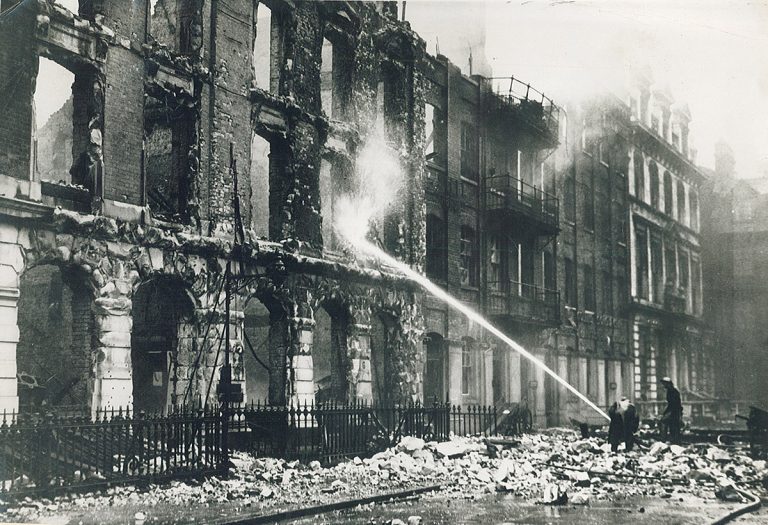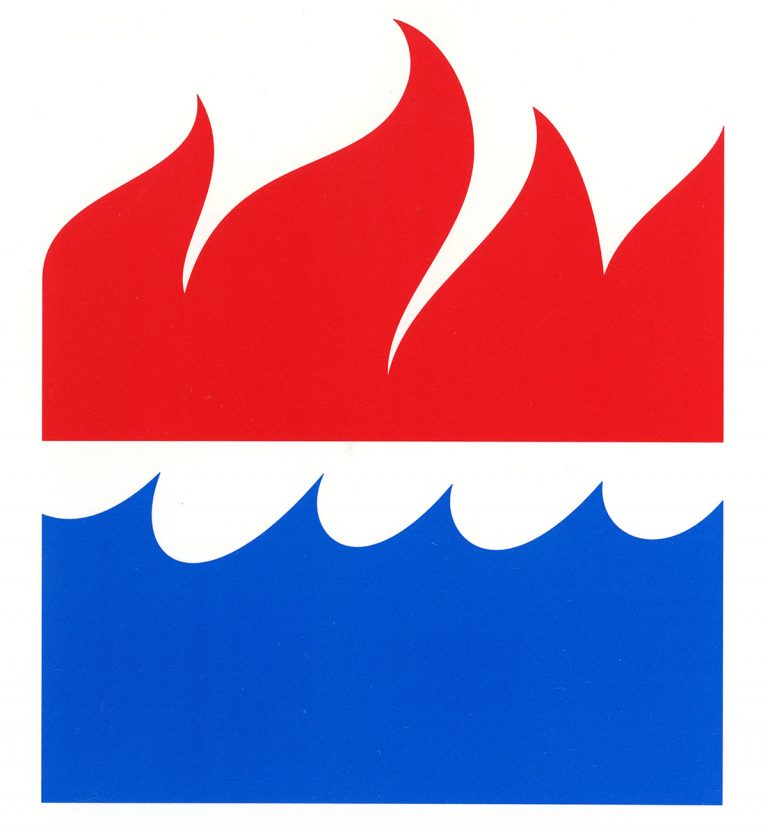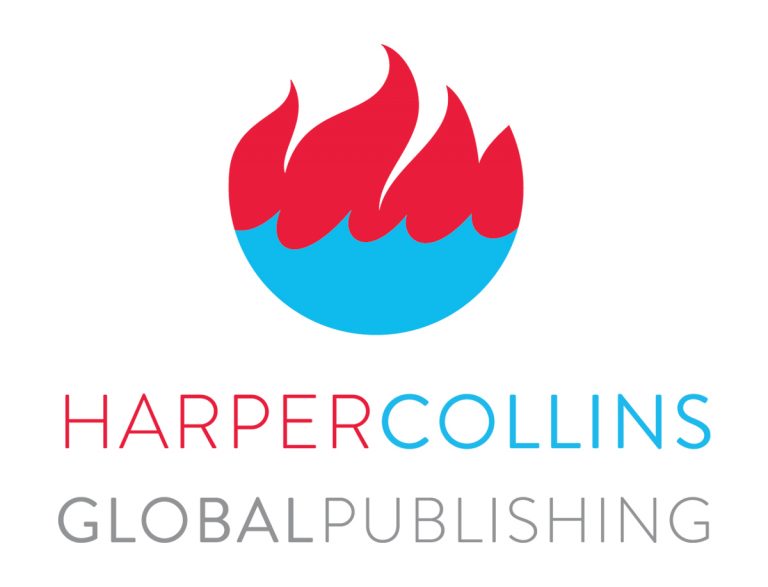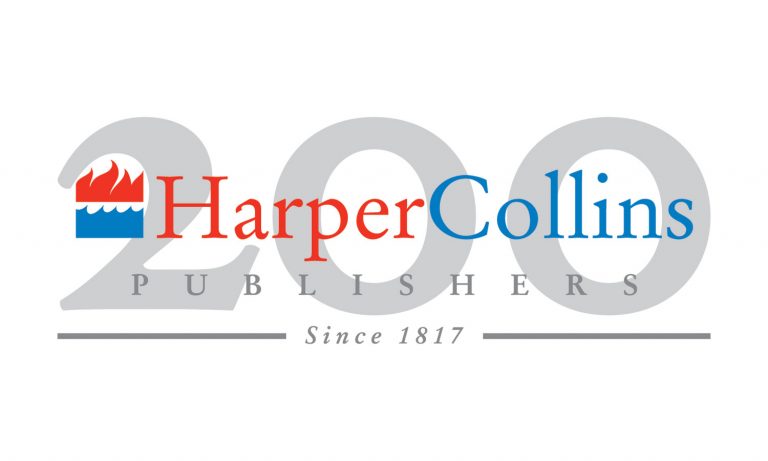Explore significant moments in HarperCollins history
Collins Operations during WWII
Collins maintained combined office and warehouse space at Bridewell Place in London for many years, and in 1917, its new London publishing office at 48 Pall Mall was complemented by printing works in Mayfair that included a state-of-the-art bindery, warehouse, and distribution center. In the Glasgow offices the company raised funds for comfort packages for its employees on the front line and sent monthly packages and Christmas presents.
On December 29, 1940, air raids destroyed the Bridewell building. At this point Billy Collins offered to move the London office to Glasgow for safety, but the employees elected to stay. On February 23, 1944, a similar German blitz destroyed the Pall Mall office. When Harold Raymond, chairman of competitor Chatto & Windus, surveyed the damage of the Pall Mall building, he saw staffers “nobly trying to collect manuscripts and scattered files, and generously offered the immediate tenancy of a flat in his own King William IV Street offices” to the beleaguered Collins firm.
Also in 1940, Collins moved both sets of its Bible plates off premises to the Collins family home in Ayr and Canada to safeguard them. In order to make up for reduced manpower and limited materials in Great Britain, Collins outposts in Australia, New Zealand, and Canada were asked to step into the breach and ramp up production. In response to the plea, publishers in the British Commonwealth started printing Bibles at an unprecedented clip alongside a stream of classics and patriotic fiction. Soon, Collins’s White Circle series and popular romances such as The Timeless Land by Australian Eleanor Dark reached the four corners of the globe.
After the war, the Collins team took up full residency at 13-14 St. James’s Place, two beautiful eighteenth-century homes transformed into publishing houses.





